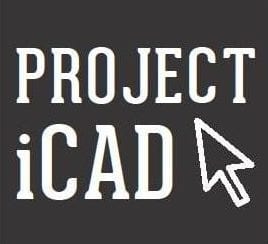
Project Name: iCAD
Principal Investigator: Kristen Lindgren, PhD
Grant Title: Using Implicit Measures to Improve the Prediction of Hazardous Drinking
Sponsor: National Institute on Alcohol Abuse and Alcoholism
Project Period: 12/15/12 – 11/30/17
Grant Number: R01AA021763
Project Coordinator: Cecilia Olin
The overarching objective of the project is to improve the prediction of hazardous drinking (HD; heavy alcohol use and negative alcohol-related consequences) in college students. For young adults, the college years are associated with increased risk for heavy alcohol use and problems, including death, physical injury, sexual and/or physical assault, unprotected sex, and driving while intoxicated. Dual process models of drinking suggest a way to improve the prediction of HD. Dual process models posit that both explicit (slow, reflective) cognitive processes and implicit (fast, reflexive) cognitive processes contribute to addictive behaviors. However, alcohol research has emphasized explicit processes, which may leave implicit processes unaccounted for. These studies seek to increase the prediction of HD by accounting for implicit processes through the use implicit measures (IMs) of alcohol associations. We are focusing on the prediction of two, different aspects of HD. First, dual process models posit that implicit processes become increasingly important as addictive behaviors become established. For college students, the early college years represent both a time period when drinking behaviors are being established and a time period of heightened risk for HD. Therefore, we will conduct a prospective study that will follow a random sample of 500 students in their early college years and assess IMs, their explicit self-report measure (EM) counterparts, and measures of hazardous drinking at 3-month intervals for 2 years. We will investigate the full range of drinkers (abstainers to heavy users) at a time of increased risk, which will allow for an examination of within- and between-person change in hazardous drinking, IMs, and EMs. Second, dual process models posit that, in established drinkers, implicit processes should dominate when cognitive processing resources are limited or are unlikely to be applied, such as in the presence of positive affect or when self-regulation resources are depleted (ego-depleted). For college students drinkers, positive affect and ego-depleted-related drinking are associated with greater alcohol consumption and experiencing more alcohol-related problems. Therefore, we will conduct 2 laboratory studies that will include IMs and EMs; induce positive affect or ego depletion; and measure participants’ alcohol consumption in a subsequent ad lib drinking task. Collectively, these studies are intended to improve the prediction of HD in college students by accounting for implicit processes, and ultimately, are intended to identify additional targets for prevention and intervention efforts.
